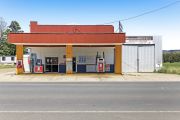
Rich Lister secures $100m for non-bank lender but avoids apartments
Rich Lister Tony Denny has secured a $100 million injection to expand his non-bank lending activities, but will steer clear of funding multi-unit construction where diminishing lender appetite is shrinking the apartment pipeline and exacerbating a looming housing shortage.
Central Real Capital, which Mr Denny founded two years ago with $200 million of his own money after stepping back from apartment development on the Central Coast, has provided early-stage, short-term funding on more than 50 commercial and residential projects, advancing more than $500 million in total loans to date.
However, Mr Denny said the risks were too high in apartment construction.
“Central Real Capital takes a conservative view around construction lending for residential apartment projects based on a mix of concerns with in-ground risk, supply chain issues and potential for builder failure,” he told The Australian Financial Review.
However, the funding from Balmain Corporation would allow Central Real to back residential land subdivision projects where “many of the key construction risks can be far more easily mitigated”, he said.
Central Real would also fund “select non-residential construction projects”.
“We prefer these to residential apartments as they are typically smaller, asset value is underpinned by a strong pre-lease commitment, and we aren’t dealing with subterranean construction,” Mr Denny said.
Amid a spate of building firm collapses, project cancellations and cost blowouts, approvals for private-sector dwellings excluding houses fell 43.5 per cent in July, hitting their lowest level in over a decade, according to the Australian Bureau of Statistics.
The ABS said this sharp fall to 3439 dwellings was driven by a lack of approvals for large apartment developments.
A decision to steer clear of apartment construction funding has not dented the growth ambitions of Central Real Capital, which expects to have $500 million of total finance capacity locked away by July, including another $100 million injected from Mr Denny’s own private wealth sources.
The additional $100 million from Balmain doubles the warehouse lending facility provided to Central Real Capital from the Sydney financial services firm.
Non-bank lending is the third evolution of Mr Denny’s colourful business career, which started with the founding of a Prague-based car dealership, which he later sold to Polish private equity firm Abris Capital Partners for $320 million in 2014. He returned to the Financial Review Rich List this year with a $749 million fortune.
One of many private lenders seeking to service gaps in the commercial real estate debt market created by the diminishing appetite of the major banks, Central Real has focused on providing loans of between $5 million and $20 million for up to 12 months to finance developments in the early or pre-construction phase.
The short-term bridging-style loan has enabled developers to advance their project to the point where they can refinance with a bank on more conventional financing terms.
“Our sweet spot is to service borrowers who are getting their site’s development ready, or where they need to secure pre-sales,” said Central Real Capital CEO David Stone.
Projects financed by Central Real include fast-food outlets in Queensland and regional New South Wales, the acquisition of an amalgamated site in Newport, and residential subdivision projects in Sydney’s north-west and south-west growth corridors.
Targeting a loan book size of $1 billion – Central Real now has a $330 million lending book – Mr Stone said the non-bank had ambitions to become the “pre-eminent private provider of development finance in Australia”.
This funding does not come cheap – interest rates charged by Central Real are in the high single digits – but it does offer a solution for developers with good projects that do not fit the strict criteria of the major lenders.
“With $500 million in loans written within two years, our approach clearly is resonating,” Mr Denny said. “There is room for private lenders that are nimble, who understand and can move quickly to meet developers’ funding needs, and who are reliable.”











